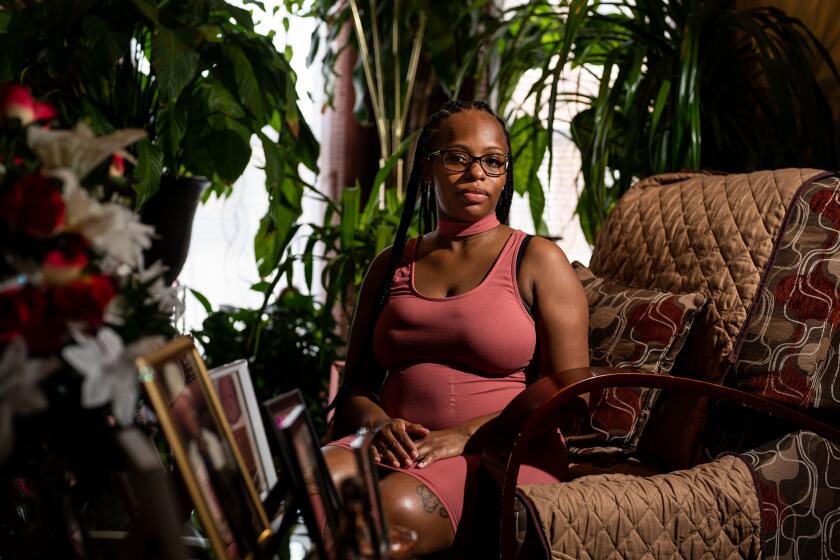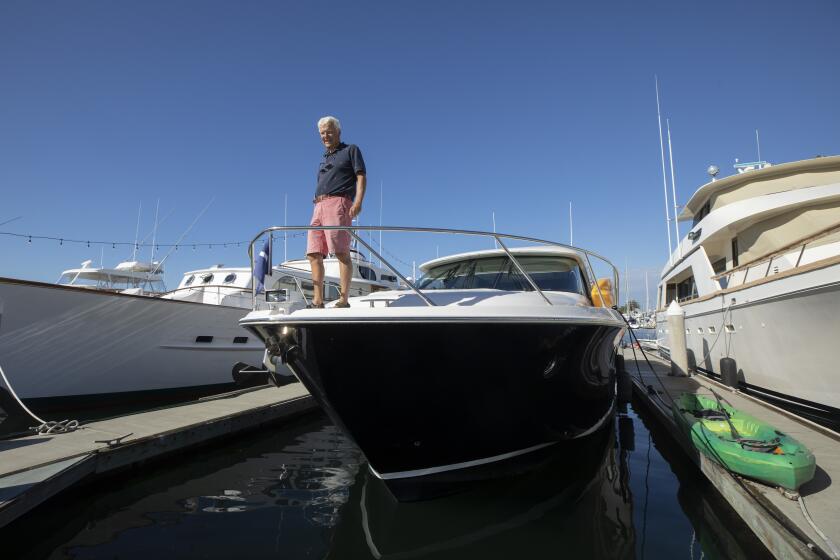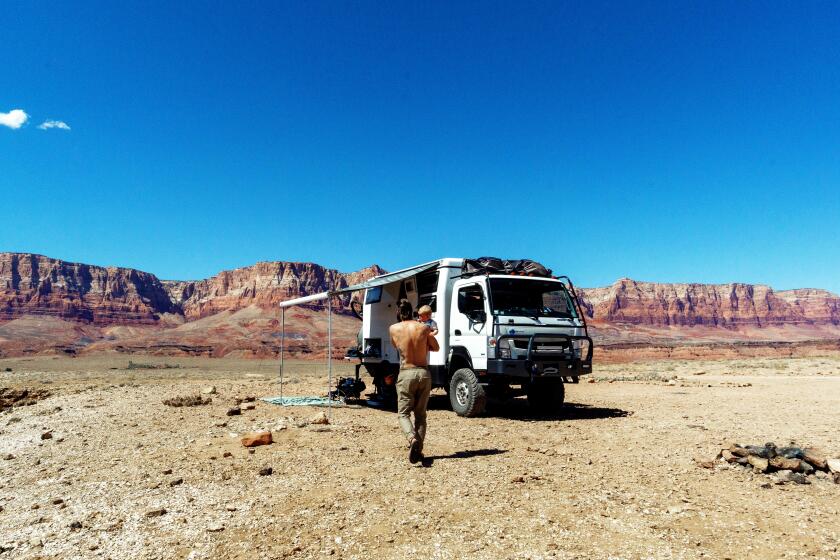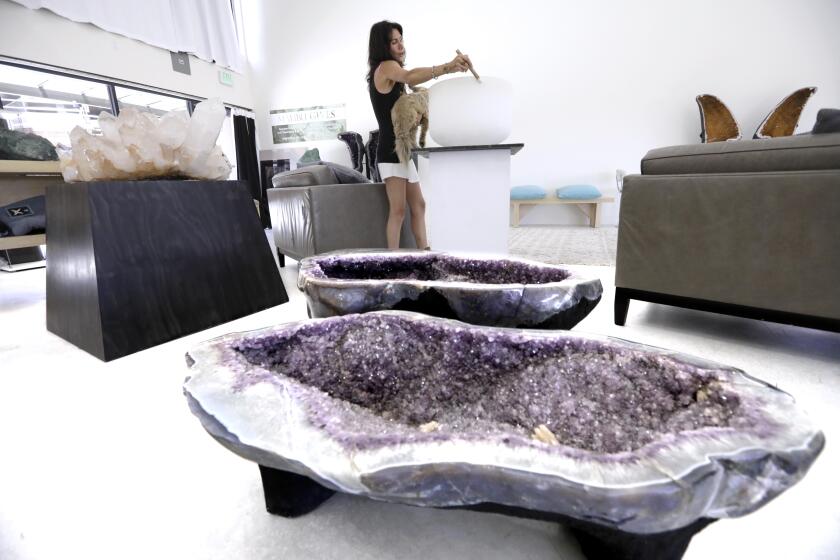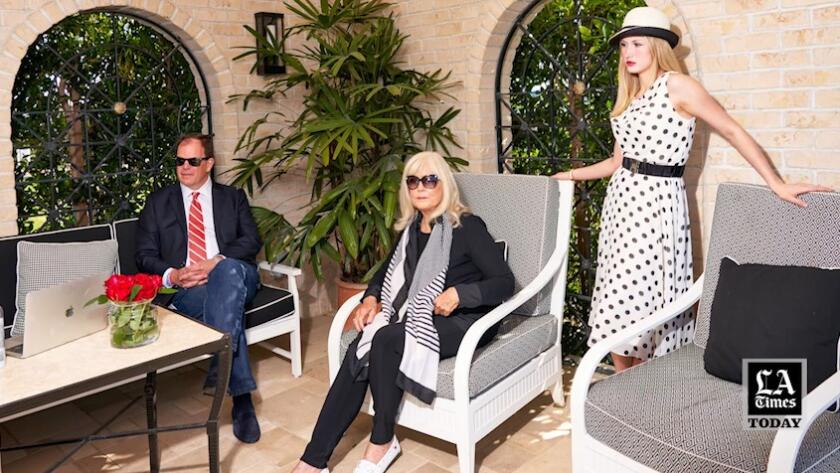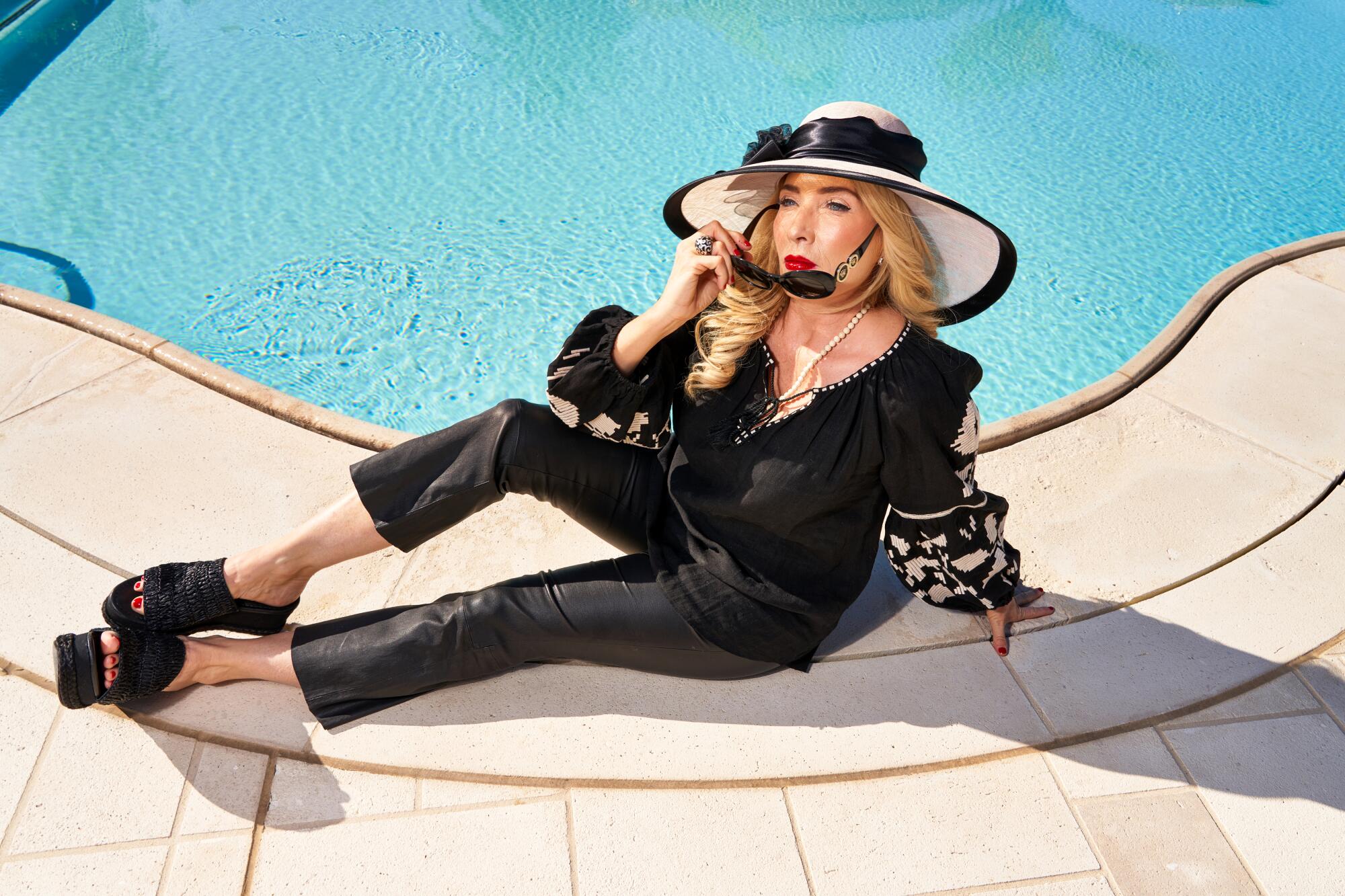
MONTECITO — Amber Kelleher-Andrews is looking for a husband: preferably attractive, ideally successful and, above all, indisputably rich.
She has just the right woman lined up for him.
“Her face is more beautiful than any woman you’ve ever seen in your life. It was, like, stunning,” Kelleher-Andrews says of her newest client, a 29-year-old from London whom she’d just met for lunch at the Waldorf Astoria Beverly Hills. “She just sits down and says, ‘Hello hello, I’m going to finally meet my husband.’ And I’m like, ‘Yes, we are!’”
They say you can’t put a price on love, but the elite matchmaker has put a price on finding it for you: $30,000 to $300,000 a year for her company’s services. “I know it sounds like a lot of money,” she says, “but it’s pocket change to the wealthy.”
As co-chief executive of Kelleher International, one of the country’s largest matchmaking firms, Kelleher-Andrews, 52, has been pairing off super-rich singles for more than half of her life. The company’s clientele is a tabloid’s dream lineup of Hollywood entertainers, Silicon Valley founders, professional athletes and coaches, politicians and Wall Street tycoons. The list is of course confidential, though a few recognizable names — Terrell Owens, Cheryl Tiegs, Hoda Kotb and Bode Miller — have copped to being members at one point.
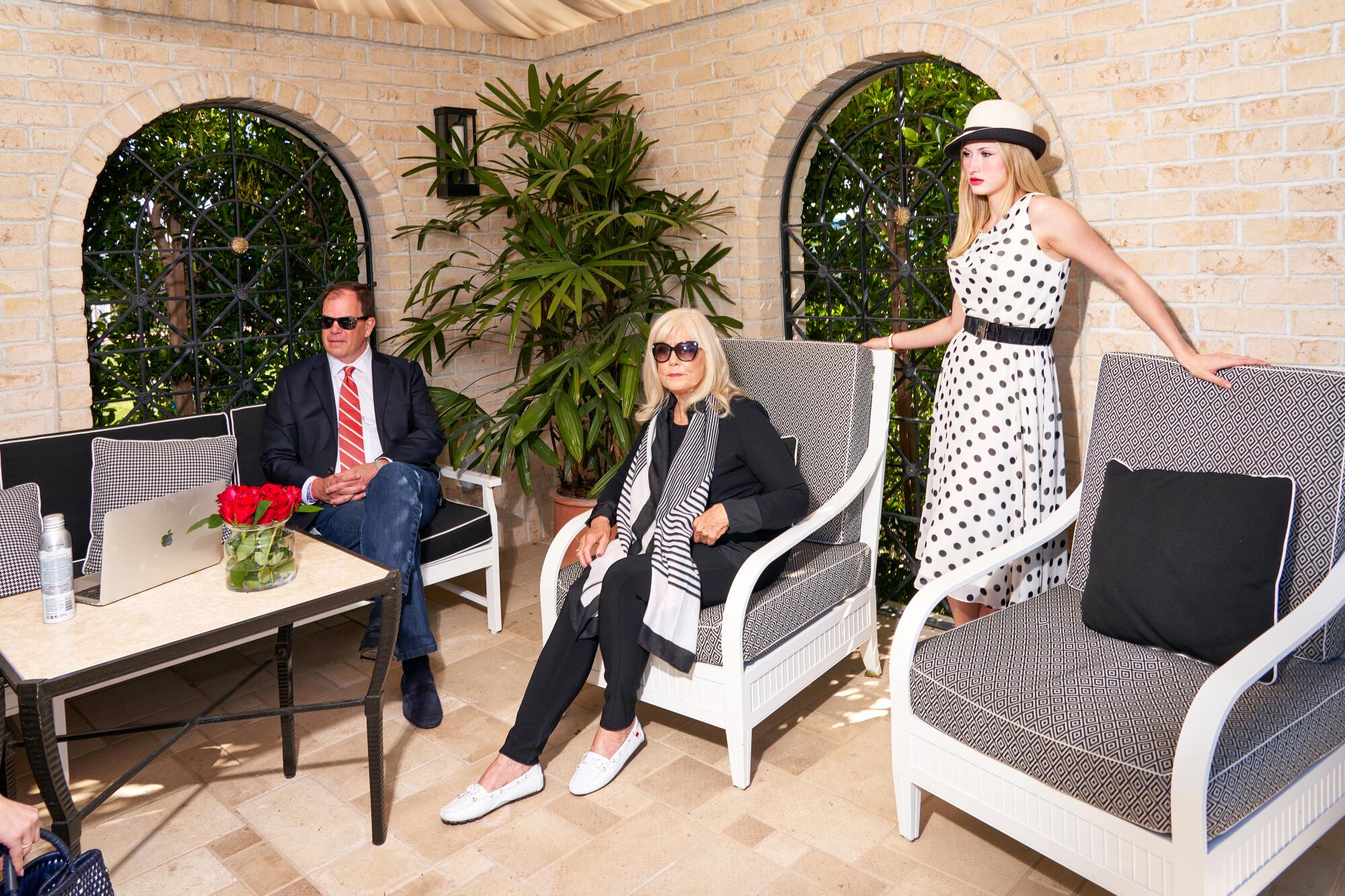
There is no minimum net worth required — being able to pay the membership fee is proof enough — but clients must be serious about wanting long-term commitment. It is not, Kelleher-Andrews says, “showing up for a hookup.”
Earlier this month, she was conducting business poolside at the Rosewood Miramar Beach resort, looking first-date ready in a sheer mini-dotted black dress and chunky Versace sunglasses, cherry-lacquered mani-pedi matching her bright red lips, striped straw hat perched atop platinum blond curls. The beach just below, her 16-year-old daughter, Tallulah, says, is where Travis Barker recently proposed to Kourtney Kardashian while kneeling in an enormous heart made out of roses.
These companies say Gen Z is tired of Tinder, Bumble and Hinge. They offer videos, memes and artificial intelligence-based dating apps instead.
This has been Kelleher-Andrews’ temporary work setup for months after relocating the company from its longtime headquarters in Marin County to Montecito during the pandemic. While construction is ongoing at the firm’s new offices next door — she’s converting part of the space into a “mini retreat” for clients to come mingle — the corner cabana at the lavish five-star hotel is where she often takes matchmaking calls and hosts virtual staff meetings.
Kelleher-Andrews and her mother, Jill Kelleher, who founded the company in 1986, panicked at the start of COVID, fearing it meant the demise of their business. Their team of matchmakers almost always met in person with potential clients to get to know them and to eliminate liars, losers and low-incomers. Besides, could sparks really fly over Zoom?
They could. The $5-billion U.S. dating industry surged during the pandemic. Kelleher International recorded its best year ever in 2020; revenue then nearly doubled in 2021, to $12.4 million. The firm is on track to top $18 million this year.
Times of crisis have often translated to an unexpected boom in business for the company.
“We did really well in 2001 when the World Trade Center went down. We were so busy,” says Kelleher-Andrews, a former actress who has appeared on “Baywatch” and “Melrose Place.” “And then when the recession hit, we were so busy. And then when COVID hit, we were so busy. People are reevaluating. Bush said, ‘Go home and hug your family,’ and they’re like, ‘I don’t have a family, I’ve been working on Wall Street.’”
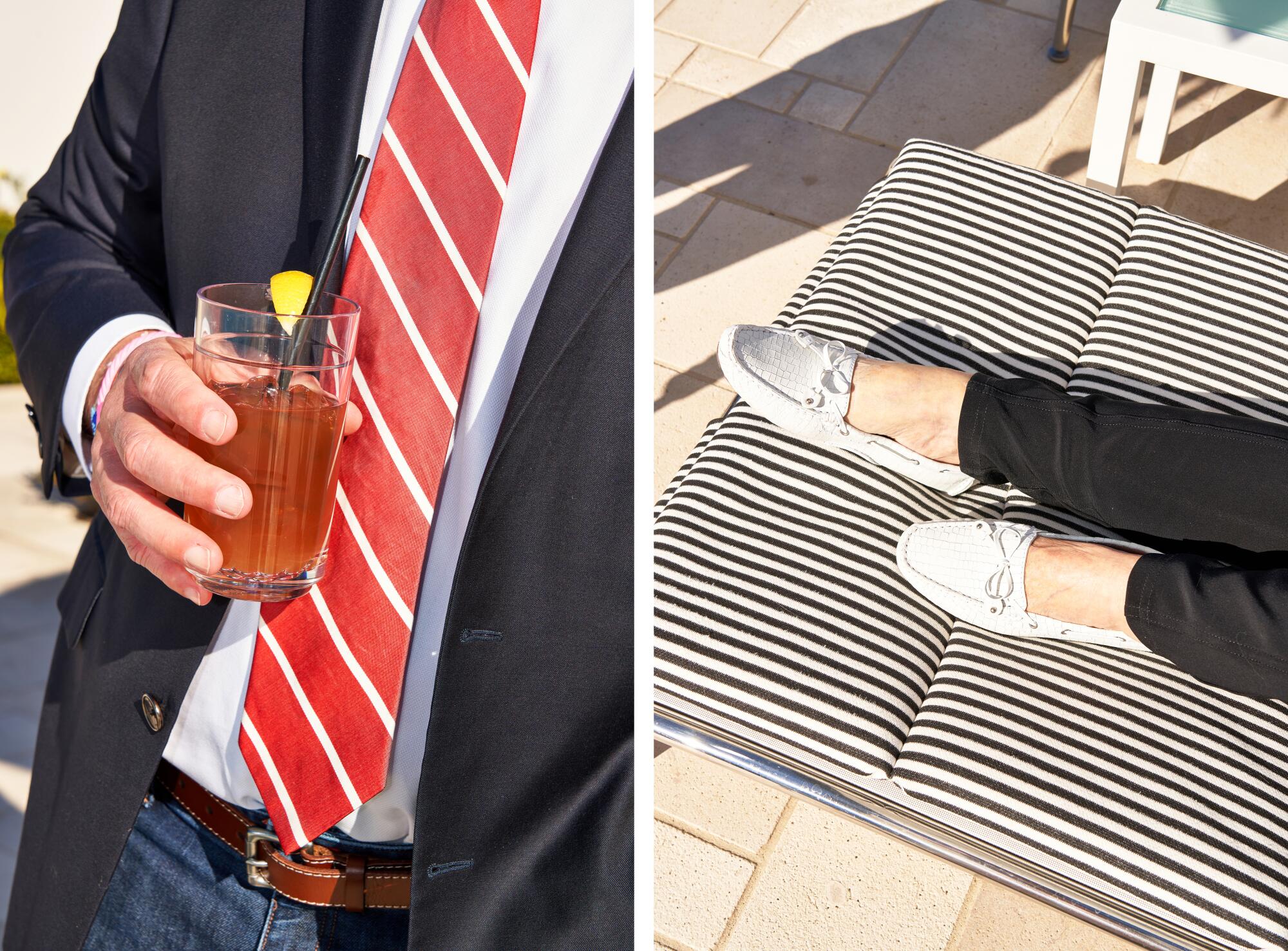
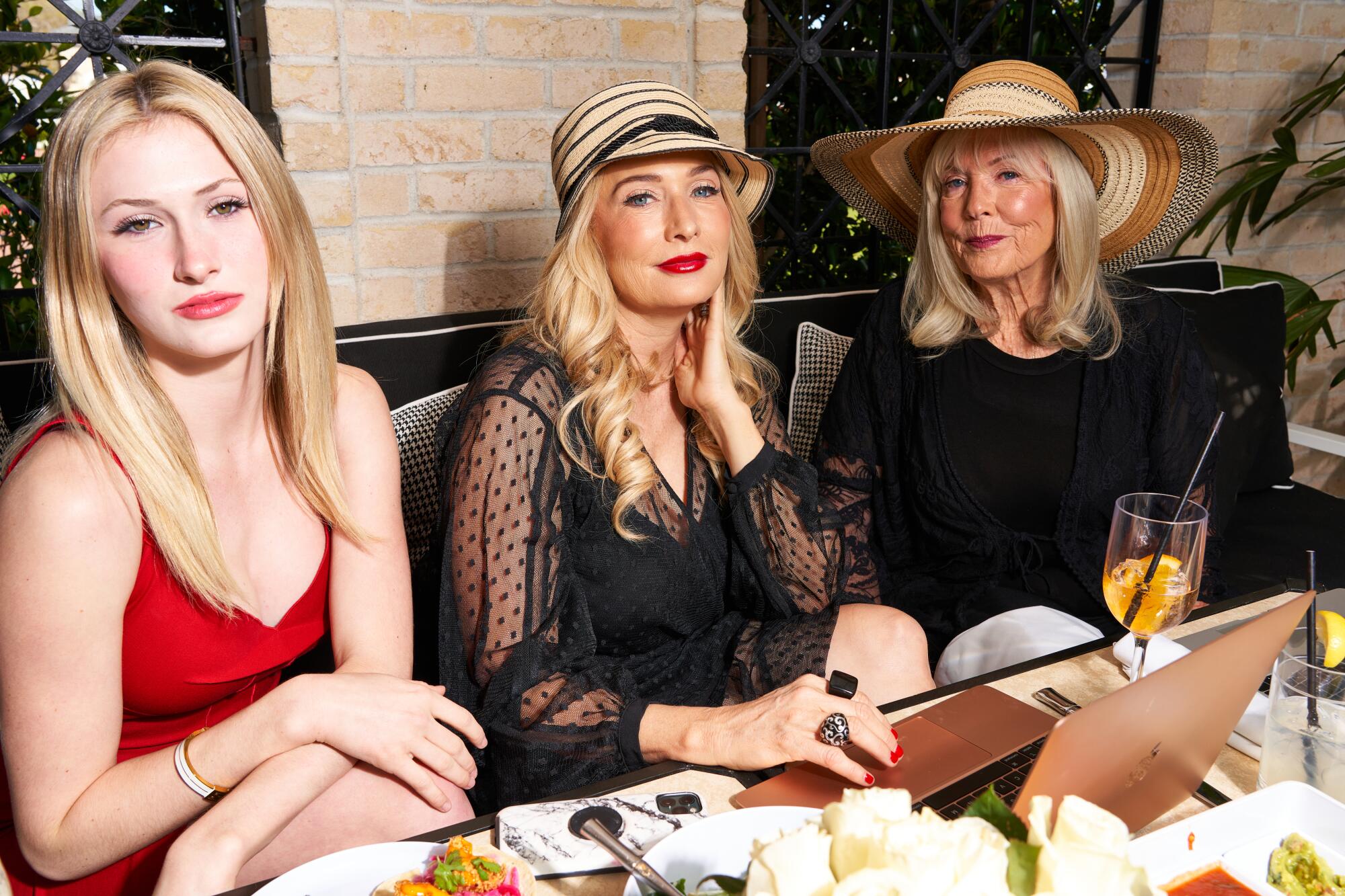
Matchmaking in the era of free dating apps seems almost quaint, but Kelleher-Andrews insists the two don’t compare — particularly if you’re famous and loaded. It is one of many ways the rich use their money to insulate themselves from annoyances visited on regular folk, whether it be commercial flights, airport security, home cooking or taking care of their own kids.
“It’s the most important task of your life; why not have someone do the legwork?” Kelleher-Andrews says. The wealthy are “busier, much more successful and have much more to lose, and don’t like putting themselves out there publicly because they could have gold diggers or stalkers.”
Priming the pump
On a Tuesday morning in January, the Kelleher International team has gathered on Zoom. They are a glamorous and gregarious bunch of nearly all women, the tiled screen resembling a hair salon lookbook instead of a corporate weekly all-hands meeting.
Image, Kelleher-Andrews says later, “is everything.”
“We’re not selling a car; we’re selling a lifestyle,” she says. “And if we don’t match their lifestyle, they don’t understand how we can find them their match.”
The drug Makena doesn’t reduce the risk of preterm birth, a study found, and the FDA recommended it be taken off the market. Its maker has refused.
The company permanently closed its branch offices during the pandemic and now its 40 employees — matchmakers, entry-level network developers who focus on vetting, relationship coaches and membership salespeople among them — work remotely. Many are located in Southern California, its largest of more than a dozen markets including San Francisco, New York, Dallas, Denver, Miami, Atlanta, Toronto and London.
“So many of the clients actually do have COVID,” one of the matchmakers, Molly Davis, reports at the beginning of the call. But they’re being “particularly safe in terms of how they’re moving about, even with the luxury of private transportation.”
After Kelleher-Andrews reminds her staff to sell clients on upcoming member events — an intimate retreat to Richard Branson’s Necker Island resort in April and various Grammys and Oscars parties — the team turns to client challenges. One network developer bemoans a British man who was perfect in every way, save for one flaw.
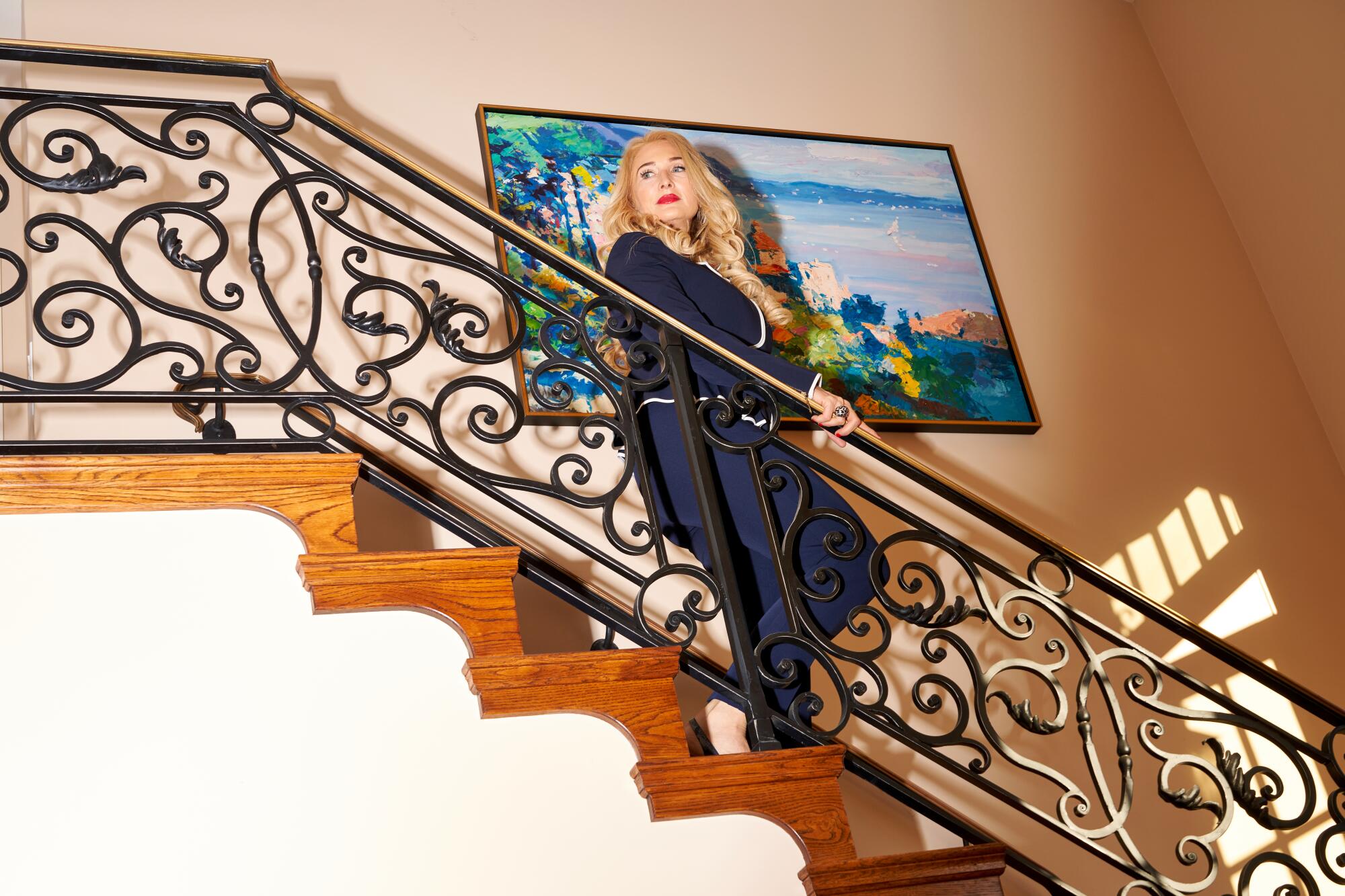
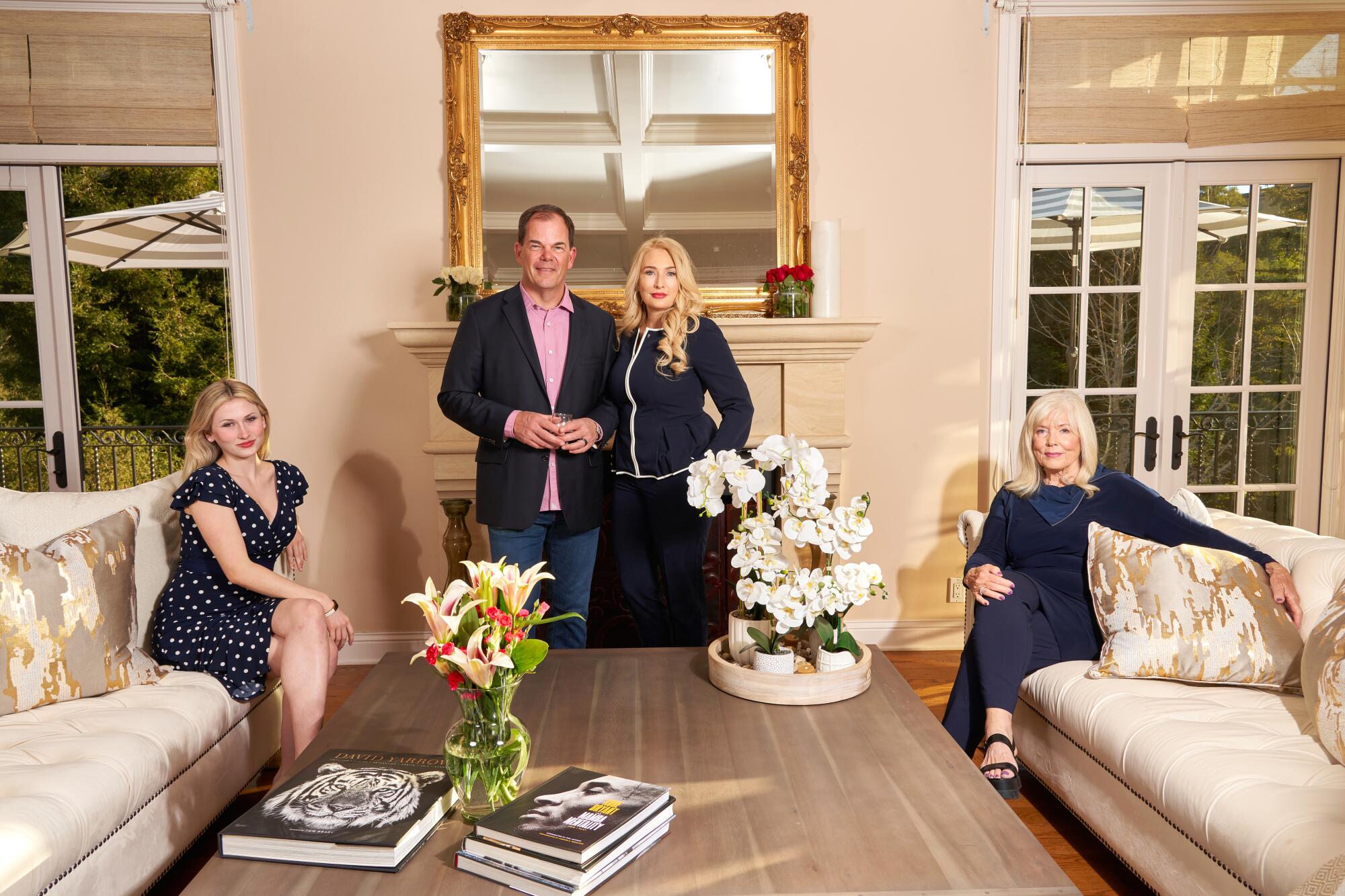
“He was a guy that we loved, he had a great personality, overall very attractive,” she says. “But we kept getting the same feedback: ‘He’s so great, but his teeth.’ It’s something that a lot of people couldn’t get past.” (She ultimately passed along the criticism, with a gentle suggestion to get them fixed.)
The majority of the firm’s 800 inquiries a month come from online search traffic, and about a third from referrals. To make the cut, Kelleher-Andrews and her team probe a potential client’s finances, education, marital status, dating history, family background and career trajectory, and conduct interviews to gauge commitment and charm.
Fewer than 5% are accepted; today, there are about 600 clients around the world under one- to three-year contracts, a nearly even split of affluent men and women. Higher-priced membership levels mean a wider pool of matches, access to relationship and life coaching, an outside search for people not already in the company’s database and individual attention from Kelleher-Andrews.
I figured, well, gee, let’s prime the pump a little bit.... I worked hard to get where I am, and where else am I going to use my money?
— Benson Riseman, co-founder of Green Dot Corp. and a former Kelleher International client
Matchmakers are full-time employees and incentivized with bonuses for relationship milestones; an engagement is worth $2,500. Kelleher-Andrews says the company has been responsible for thousands of marriages, with 87% of her clients “finding love.”
Benson Riseman, co-founder of financial technology firm Green Dot Corp., is one of the happily ever afters. Ahead of the company’s 2010 IPO, he says, he began contemplating the next stage of his life and figured hiring a matchmaker might help him find the right woman.
“The whole idea was foreign to me of finding someone else to represent me, but I figured, well, gee, let’s prime the pump a little bit, let’s see some folks and meet a lot of people,” Riseman, now 65 and a philanthropist, says. “I worked hard to get where I am, and where else am I going to use my money?”
He signed with Kelleher International in 2011, dating frequently for the first few years.
“I jumped in with both feet and every time the phone rang and they said, ‘We know this lady …’ I said, ‘OK, let’s go,’” he recalls. “It was entertaining, and for the most part it was more fun than sitting at home eating Frosted Flakes in bed.”
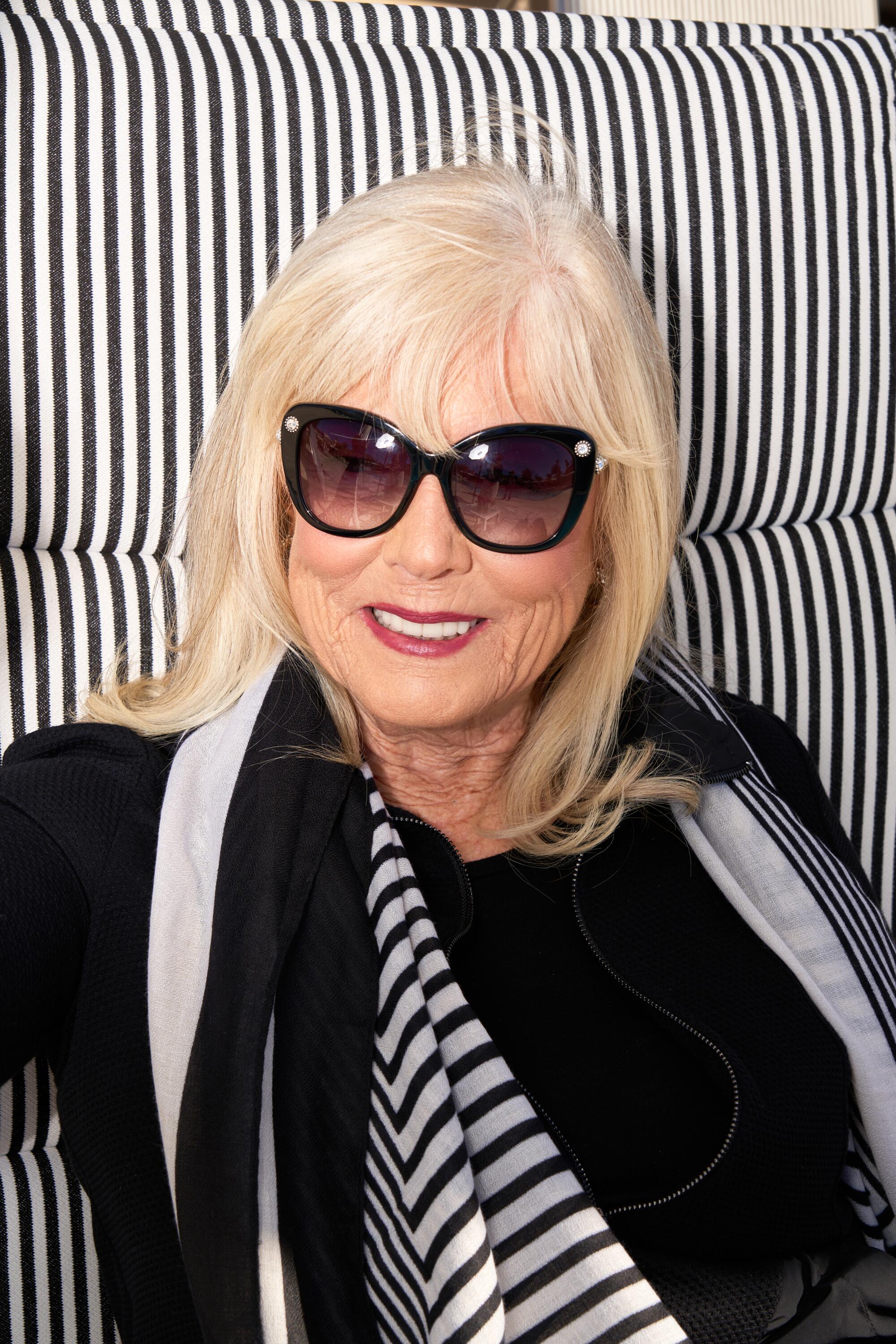
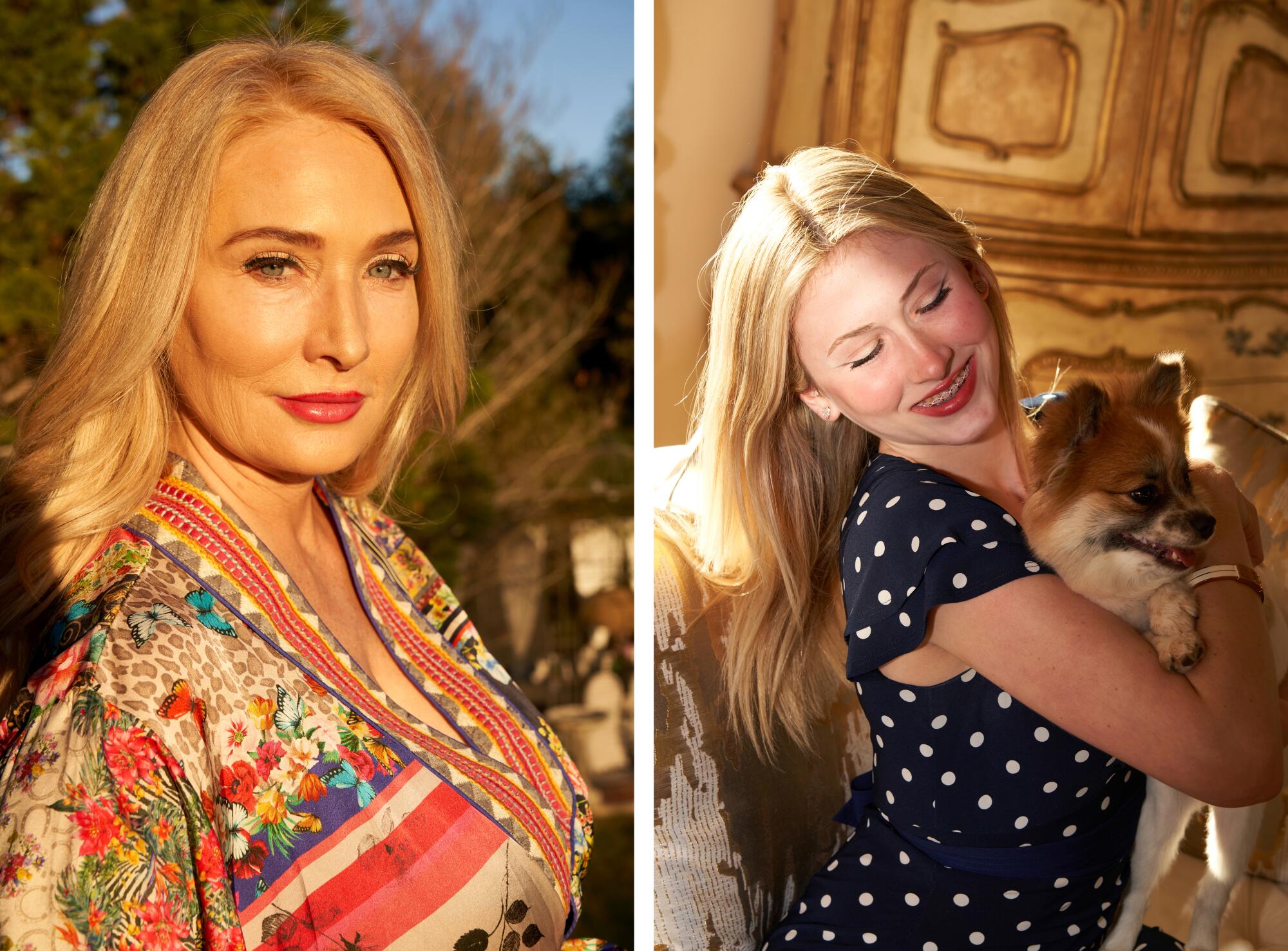
In 2014, Riseman was matched with a woman who worked in luxury real estate. They chatted on the phone twice before meeting in Las Vegas for dinner. They were both divorced and each had an older son and a younger daughter, a commonality that helped forge a bond from the start; they married three years later. “It was a good fit in every way,” he says.
Another former client, a 55-year-old Emmy-winning actress and producer from Encino, joined after going through a divorce.
“I was always afraid of going on any of the dating sites,” she says. “Being a semi-public figure — I’m not a Nicole Kidman or something — I was always like, ‘What if there’s a serial killer out there?’ I wanted more background checking.”
She was also frustrated by L.A.’s dating scene.
“It was hard to find someone in this town who a) doesn’t want to only date 30 and under, and b) is serious about looking for a real relationship and isn’t just trading up and trading in every month or so,” she says. “I needed some help weeding those guys out of the mix. And these guys at Kelleher were serious about finding love because they’d just committed a crap-ton of money toward doing that.”
Yacht brokers say demand is through the roof, with little to no inventory and multi-month wait lists.
Right away she was matched with a Silicon Valley tech co-founder whom she was with for almost half a year; the two ultimately broke up because of the long distance. She met a handful of other men after that — all fabulously rich, some obnoxiously so: “If a guy leads with a jet, he’s a douchebag,” she says — and one has become a close friend, though it didn’t work out romantically.
A few client relationships have turned sour. In 2017, Kelleher International settled with a former QVC executive who said she had paid a $150,000 membership fee only to go on a string of bad dates, including one with an Australian entrepreneur who took her to Costa Rica and Panama and then whisked his ex on another trip the same day she returned home. Another man, listed in the lawsuit as “the Serial Lothario,” was a Fortune 500 executive who allegedly ghosted her after several months of dating.
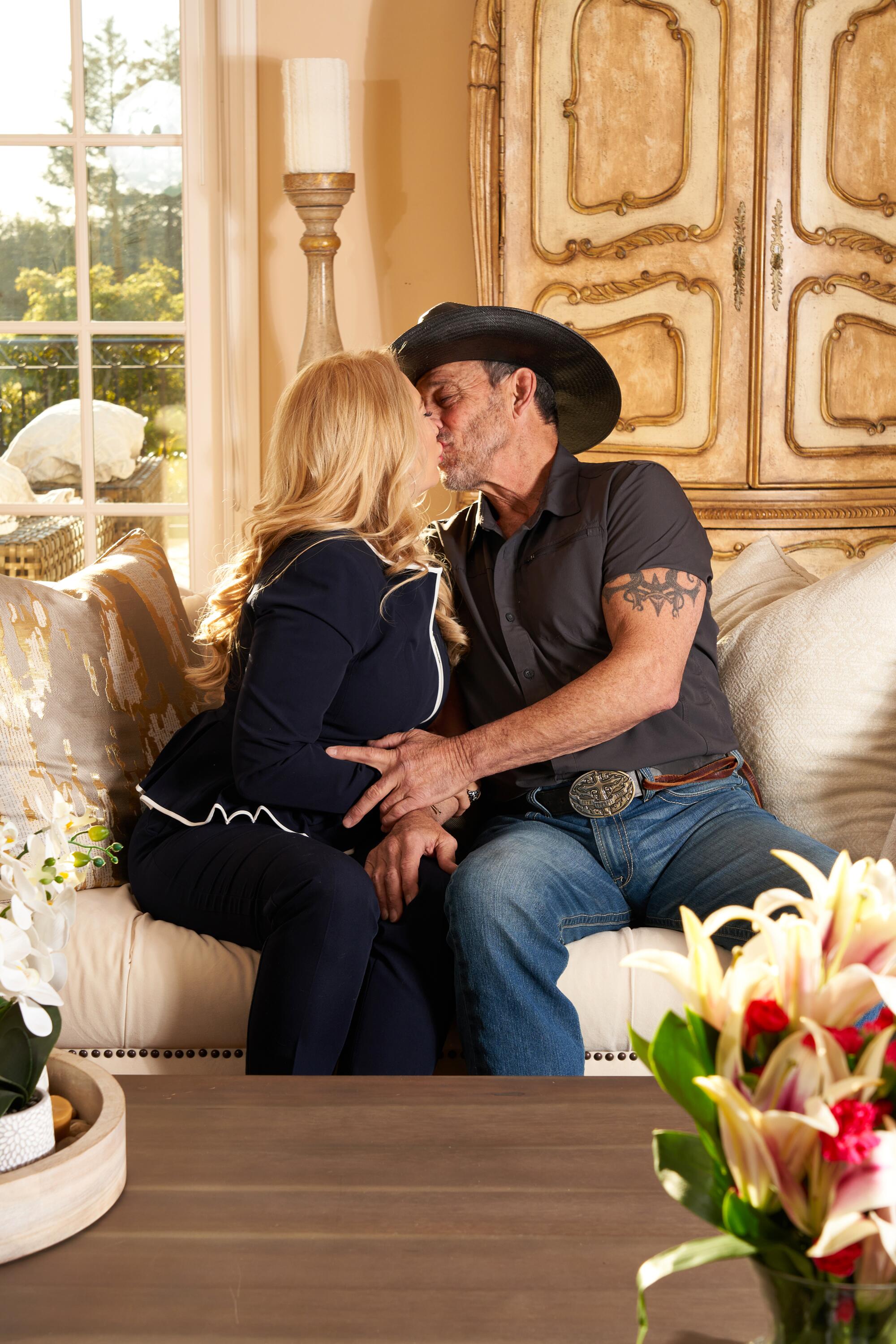
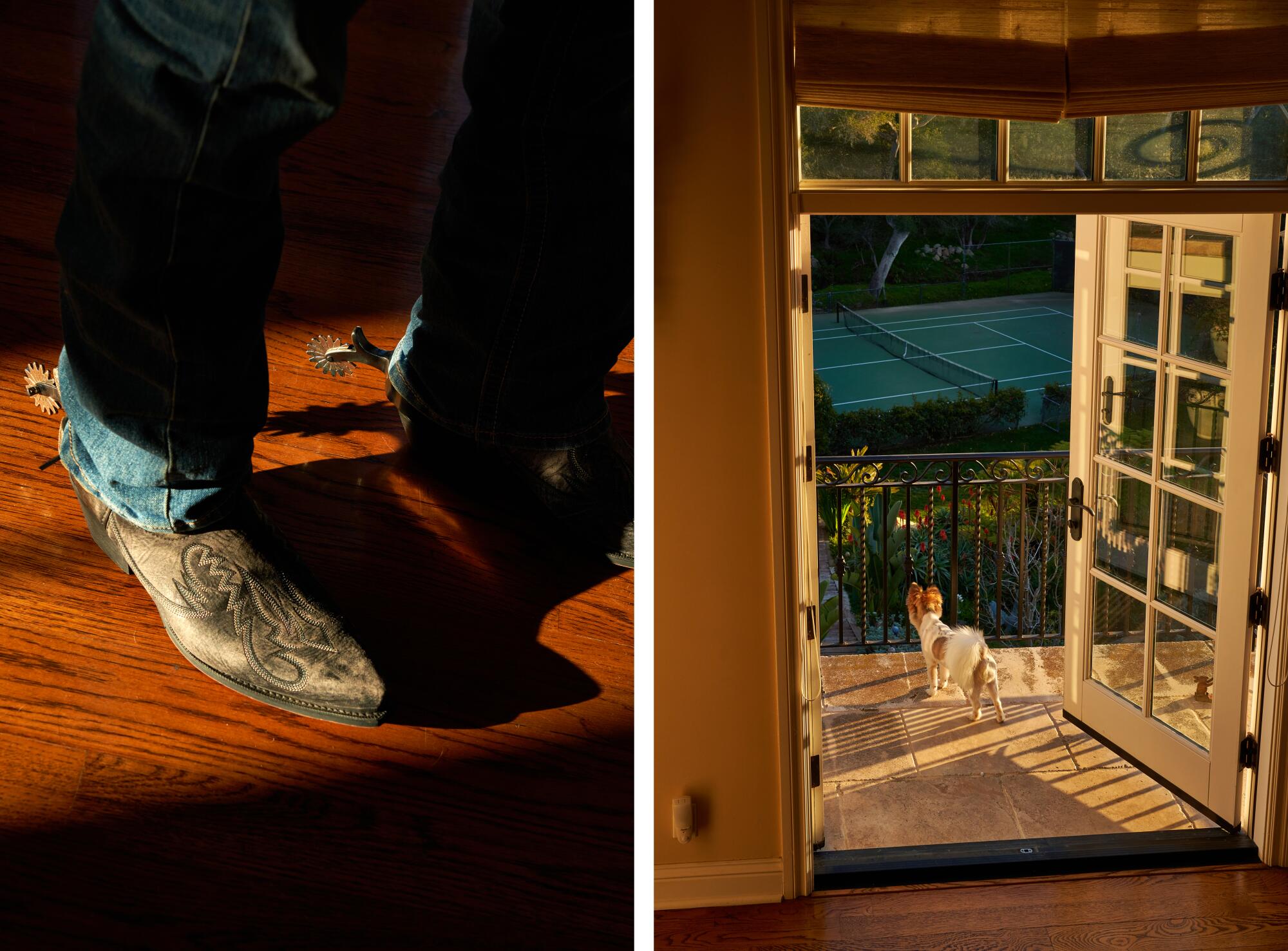
Love is in the center
Standing on a balcony at her opulent Montecito home, a seven-bedroom, eight-bathroom Colonial set on 2 acres in a gated community, Kelleher-Andrews opens up about her own wealth.
“Most of it came from real estate,” she says, looking out at a terraced backyard that leads to a private tennis court backed by rolling hills and a canopy of dense trees. There are two Porsche convertibles parked in the roundabout driveway, flanking a three-tiered fountain, and a guest wing by the pool. “It has nothing to do with Kelleher.”
She rattles off the purchase and sale prices of every home she has ever owned, an escalating spiral of added zeroes. “All my clients — when they’re spending $200,000, $300,000 — they expect me to have money.”
She joined the family business in 1995 after quitting the entertainment industry, launching her own branch in Los Angeles while her mom operated out of the Bay Area. The look-alike duo soon became fixtures of airline in-flight magazine ads, and in 2013 Kelleher-Andrews starred in an Eva Longoria-produced reality television matchmaking show on NBC, “Ready for Love,” that was canceled after three episodes.
All my clients — when they’re spending $200,000, $300,000 — they expect me to have money.
— Amber Kelleher-Andrews, co-CEO of matchmaking firm Kelleher International
In June she hired a co-chief executive, John Berg, to help grow the company. They have aspirations to bring Kelleher International to Asia, a huge market for matchmaking services, and to expand its clientele to include the LGBTQ community.
But her main priority right now is to move beyond dating.
She’s well aware of a fundamental weakness in the matchmaking business model: A winning match between clients means two lost customers. Unlike popular dating app Hinge, whose tagline is “the dating app designed to be deleted,” Kelleher-Andrews isn’t looking for a one-off relationship with her deep-pocketed, well-connected clients.
So she’s preparing to launch an exclusive social club this summer, a separate membership designed for singles and couples that costs $50,000 to join (current matchmaking clients will be grandfathered in). It’ll be a mix of philanthropy, supper parties and luxurious trips meant to foster deep friendships between members — and a more lasting tie to the firm itself. If romance blossoms, all the better.
Eager to escape claustrophobic pandemic life and take advantage of newly remote jobs, increasing numbers of Americans are taking to remote places in rugged vehicles that are also homes.
“We’re working with a group of animals and how to help rescue them and preserve this area of the world,” Kelleher-Andrews says of an upcoming excursion to Antarctica for charity. “You could have a bunch of tourists go down and say, ‘Oh, look at the penguins,’ or ‘Oh, wow, look at the polar bears,’ or you could bring a bunch of wealthy people and they’ll say, ‘We can help fix this.’”
She believes the social club could become a third of the company’s business.
“I love working with wealthy people because we’re moving the needle and making a difference in the world,” she says, “and love is always in the center.”
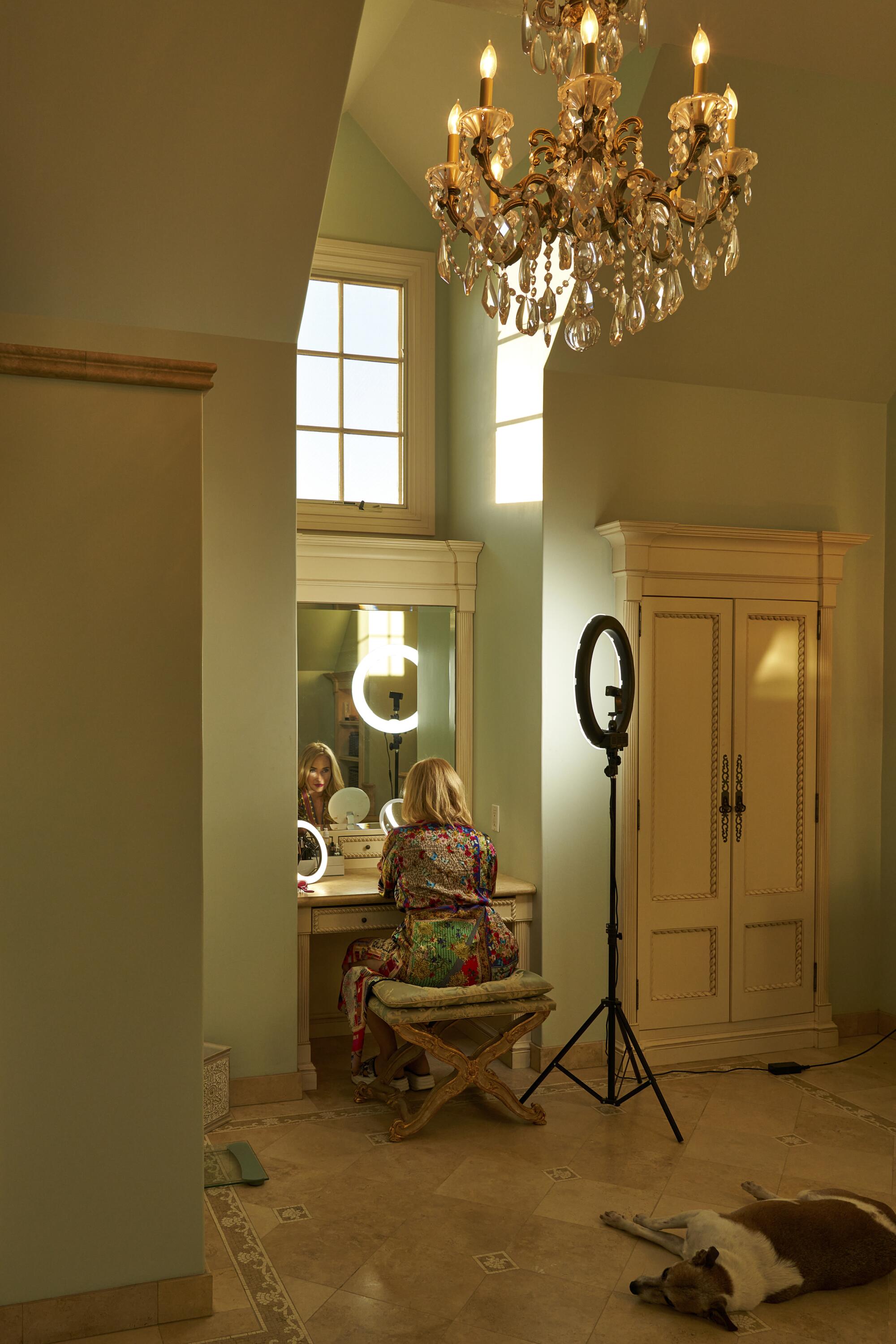
As for her own personal life, Kelleher-Andrews has been married for 22 years to Nico Andrews, a jiujitsu champion she met when she was 21 when both were working at the Roxbury on Sunset Boulevard (he was head of security; she was a cocktail waitress).
“He’ll play a flute that he makes from bamboo while he’s riding a horse and then he can kick some serious ass in jiujitsu. So you can’t really place him,” she says. “What I didn’t marry was a typical PhD Harvard guy from Wall Street, which is what we represent.”
Sure enough, around midafternoon, Andrews could be found in the grandiose kitchen downstairs, pouring himself a shot of mezcal while dressed in a cowboy hat and boots with spurs.
Flush with pandemic savings and eager to embrace all things wellness, wealthy consumers are seeking out huge crystals to decorate their homes and backyards.
Asked if he has any relationship wisdom of his own, he offers two pieces of advice: “Always make sure you’re the caretaker of your partner’s space. And also, any big decisions, make sure that you’re both involved.”
The couple have three children; Tallulah, the youngest, would like to follow in her mother’s and grandmother’s footsteps and become a matchmaker herself.
“It’s so perfect that it’s like a line of blonds, the next generation. I’m just their little mini,” the high school sophomore says. Then she pauses, leans in close and whispers, “I actually have brown hair.”
Today Kelleher, 77, is largely a figurehead for the company she founded more than three decades ago, assisting employees on challenging matches and chiming in on staff Zooms with such Hallmark-isms as “happy wife, happy life.”
She is single herself, something that Kelleher-Andrews, ever the matchmaker, would like to remedy.
“We talk about matching my mom all the time,” she says. “She won’t freaking do it.”
Watch L.A. Times Today at 7 p.m. on Spectrum News 1 on Channel 1 or live stream on the Spectrum News App. Palos Verdes Peninsula and Orange County viewers can watch on Cox Systems on channel 99.
More to Read
Inside the business of entertainment
The Wide Shot brings you news, analysis and insights on everything from streaming wars to production — and what it all means for the future.
You may occasionally receive promotional content from the Los Angeles Times.


